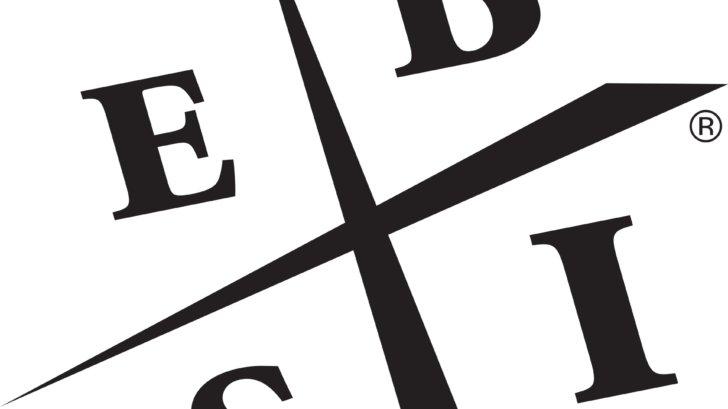This is a series of post after Rich Dad Poor Dad by same author Robert Kiyosaki
Lessons learned from the book:
> The path is the goal.
> To someone who values a job, it’s difficult to explain why you might not want one.
> It Doesn’t Take Money to Make Money
> Life is more important than money, but that money is important for supporting life
> You only have so many hours in a day, and you can only work so hard. So why work hard for money? Learn to have money and people work hard for you, and you can be free to do the things that are important
> When things didn’t go smoothly and he began to lose money, he didn’t know what to do to solve the problems, so he went back to the quadrant he felt most comfortable in.”
> Changing quadrants isn’t like changing jobs or changing professions. Changing quadrants is often a change at the core of who you are—how you think and how you look at the world.
> “If you want to be a leader of people, then you need to be a master of words.” For example, the word “risk” might be exciting to a person in the I quadrant, but evoke total fear to someone in the E quadrant.
> “Thinking is the hardest work there is. That is why so few people engage in it.”
> Hire smart people who went to school to come up with answers so he could leave his mind clear to do more important tasks, tasks like thinking.
> “Leadership,” is the ability to bring out the best in people.
> What differs S & B type of people in quadrant is like S type can make good burgers than Mc’D but B type can make better system than Mc’D.
> There are a lot of entrepreneurs out there offering far superior products or services than are offered by the mega-rich multinational corporations, just as there are billions of people who can make a better burger than McDonald’s. But only McDonald’s has created the system that has served billions of burgers.
E – You have a job
S – You own a job
B – You own a system & people work for you
I – Money works for you.
> Secrets to great riches and wealth are:
• OPT — Other People’s Time
• OPM — Other People’s Money
OPT and OPM are found in the B and I quadrants. For the most part, people who work in the E and S quadrants are the OP (Other People) whose time and money are being used.
> The definition of wealth is the number of days you can survive without physically working (or anyone else in your household physically working) and still maintain your standard of living.
For example, if your monthly expenses are $5,000 a month and you have $20,000 in savings, your wealth is approximately four months or 120 days. Wealth is measured in time, not dollars.
> I have friends who are stock traders. They buy stocks low and hope to sell high. In reality, their profession is trading, much like a person who owns a retail shop and buys items at wholesale and sells them at retail.
> Those who don’t take risk say – “It’s not return on the investment that I worry about. It’s the return of the investment.”
> The good news about investing is that risk can be greatly minimized or even eliminated, and you can still receive high yields on your money, if you know the game.
> People who seek security use the word “diversification” a lot. Why? Because the strategy of diversification is an investment strategy for “not losing.” It’s not an investment strategy for winning. Successful or rich investors don’t diversify. They focus their efforts.
> Your boss’s job is not to make you rich. Your boss’s job is to make sure you get your paycheck. It’s your job to become rich if you want to.
> If you work hard on the left side, you’ll work hard forever. If you work hard on the right side, you have a chance of finding freedom.
> Your goal is to own a system and have people work that system for you.
> A mentor is someone who has already done what you want to do and is successful at doing it.
> Don’t find an advisor. An advisor is someone who tells you how to do it but may not have personally done it.
> I told myself over and over was, “What you think of me is none of my business. What is most important is what I think about myself.”
> Investing is the key to financial freedom. My poor dad often said, “Investing is risky.” My rich dad often said, “Being financially uneducated is risky.”
> Your best ROI is not a return on your investment, but a return on your information. This is why a financial education is essential.
> Remember that anything important can’t really be learned in the classroom. It must be learned by taking action, making mistakes, and then correcting them.
> “You can’t do that” doesn’t necessarily mean you can’t. It more often means they can’t.
> Investing is not risky. Being uneducated is risky
> “Making money is common sense,” said rich dad. “It’s not rocket science. But unfortunately, when it comes to money, common sense is uncommon.
> Know the difference b/w facts & opinions.
> Due diligence simply means doing your homework and finding out which statements are opinions and which are facts. When it comes to money, most people are either lazy or searching for shortcuts, so they don’t do enough due diligence.
> Warren Buffett, America’s greatest investor, once said, “If you’re in a poker game and after 20 minutes you don’t know who the patsy is, then you’re the patsy.”
> Money is a drug. If you become addicted to money, it’s hard to break that addiction.
> “You can always quit. So why quit now?”
> To keep up in the job market, each person will need to constantly be trained in the latest technology. If you’re going to be reeducated anyway, why not spend some time educating yourself on the skills needed for the right side of the CASHFLOW Quadrant?
> Apply logic not emotions.
> To be successful as an investor or a business owner, you have to be emotionally neutral to winning and losing. Winning and losing are just part of the game.”
> The big problem is that the people on the left side are unable to see what the people on the right side are doing. But the people on the right side know exactly what the people on the left side are doing.
> “If your neighbor loses his job, it’s a recession. If you lose your job, it’s a depression.”
> While governments would like to take more money from corporate bodies, they realize that if they pass abusive tax laws, the corporate bodies will take both their money and their jobs to some
other country.
> “Build businesses, and buy real estate.”
> You’ve got to walk before you can run. A journey of a thousand miles begins with a single step.
> Today when people say, “Don’t work hard. Work smart,” they do not mean to work smart in the E or S quadrants. They actually mean to work smart in the B or I quadrants.
> Cash Flow, Not Money, Relieves Anxiety
> Money by itself is not evil, but working all your life as a slave to money was evil, and to be in financial slavery to personal debt was evil.
> Find mentors as role models. Also find reverse role models (who failed in journey).
> The size of your success is measured by the strength of your desire, the size of your dream, and how you handle disappointment along the way

